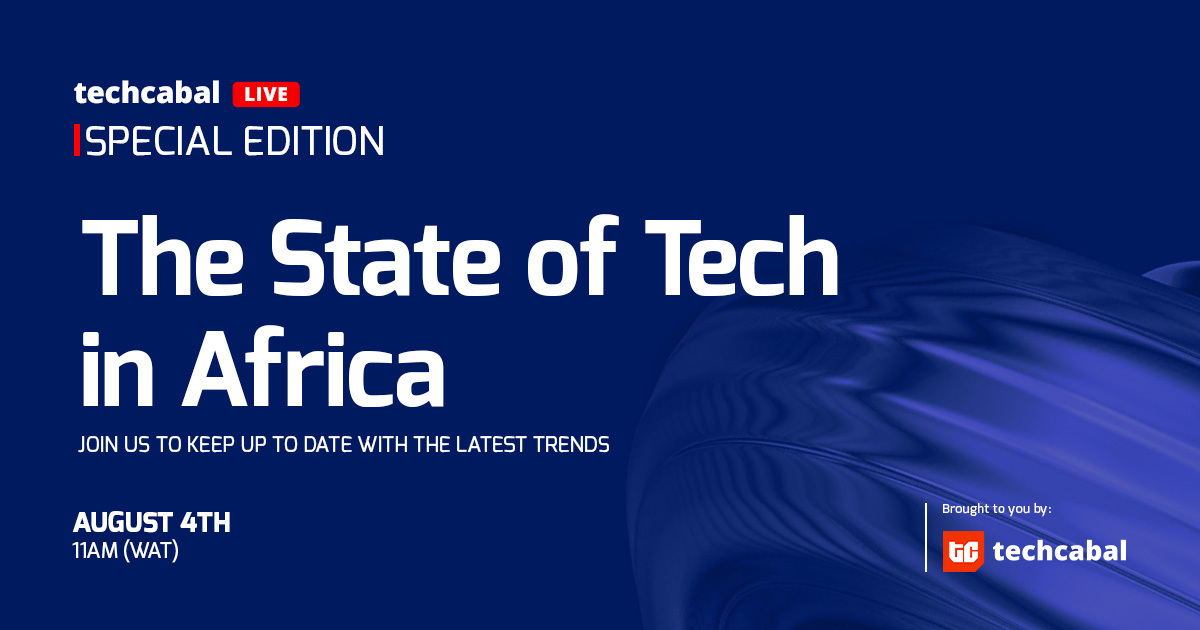

Happy new month ☀️
Vote for TechCabal!
We’ve been nominated for the “Best Educative Content Creator” award at the Social Media Awards🎉. We’d like to win so our EIC can give take us on a real deep dive at the beach.
If you’d like to support our ministry of utmost enjoyment, please take a few minutes to vote for us here.
Nigeria pledges $164 million to MSMEs and startups
African telecoms are taking a beating, and Nigeria’s shaky forex market is all to blame.
Could it be a good time to be a small business in Nigeria?
Amidst economic hardships brought on by an abrupt removal of fuel subsidies and new forex policies, Nigeria’s new president, Bola Ahmed Tinubu, is moving to bolster the country’s informal sector.
In a broadcast yesterday, the president announced that the country had earmarked ₦125 billion ($164 million) to “energise” the informal sector, especially micro, small, and medium-sized enterprises (MSMEs).
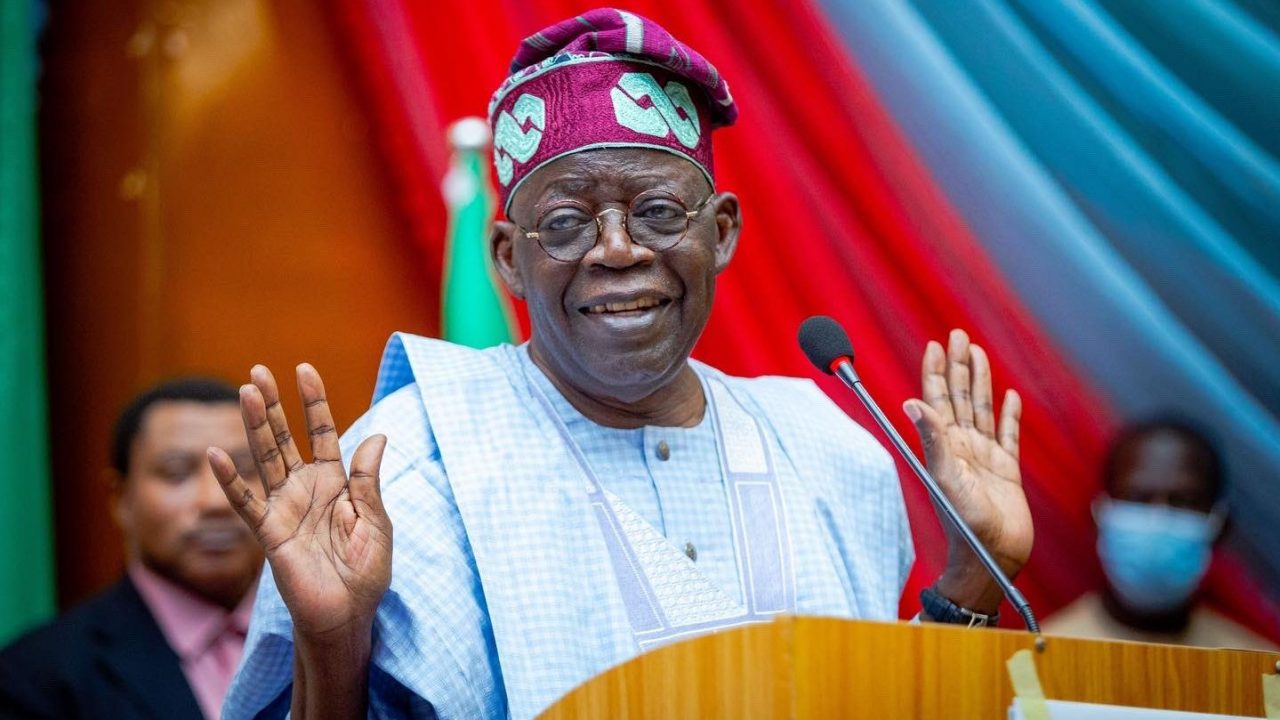
How will this work? By March 2024, the country plans to provide grants of ₦50,000 ($65) each to 1,300 MSMEs in all 774 local governments across the country. About 100,000 MSMEs and startups will also share a ₦75 billion fund ($98.6 million) from which they can apply for ₦500,000 ($657) to ₦1 million ($1,315) loans at a competitive interest rate of 9% per annum.
Manufacturers also get a cut: Per the president, a ₦75 billion ($98.6 million) fund has also been allocated for manufacturers in the country.
This fund will support 75 enterprises, each accessing “₦1 billion ($1.3 million) credit at 9% per annum with a maximum of 60 months repayment for long-term loans and 12 months for working capital”.
At this time, nothing is known about the application process for these funds. This is a developing story.
Secure payments with Monnify

Monnify has simplified how businesses accept payments to enable growth. We are trusted by Piggyvest, Buypower, Wakanow, Fairmoney, Cowrywise, and over 10,000 Nigerian businesses.
Get your Monnify account today here.
Senegal shuts down its internet again
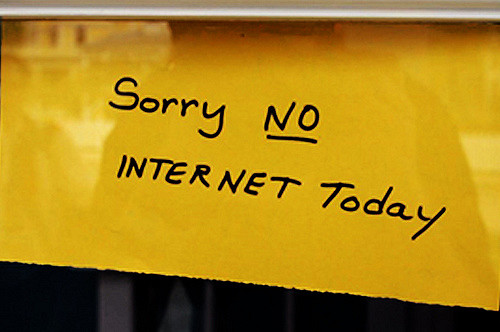
Once again, the Senegalese government has shut down access to the internet.
If this feels like like déjà vu, it is probably because this happened twice in June, following the arrest of Ousmane Sonko who ran for president in Senegal’s 2019 election.
Why is this happening again? In a tweet, the government announced it is shutting off access to the internet to maintain public order.
Apparently, there have been some hateful messages circulating on social media and stirring up trouble. The citizens are protesting Ousmane Sonko’s arrest as they think that it is politically motivated to prevent him from contesting in the 2024 election. Senegal, where approximately 58% of the population are internet users, has a history of using social media restrictions to control protests. In 2021, the authorities reportedly limited access to social media and messaging apps, in addition to measures targeting traditional media.
Zoom out: Internet shutdowns have become somewhat of a go-to move for governments seeking to assert control. Nigeria previously banned its residents from using Twitter from June 5, 2021, to January 13, 2022, because Twitter temporarily suspended the country’s President Muhammadu Buhari over an offensive tweet. Last year, seven African countries imposed shutdowns nine times. In the year before, 12 countries disrupted the internet 19 times. Is it really that hard to find a balance between openness and order, or will the internet continue to be a pawn in the political game?
Discover Trends with Smile Identity
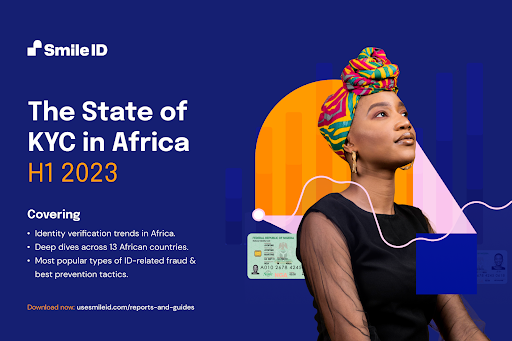
Download the Smile ID State of KYC in Africa Report on the latest trends in identity verification across Africa, highlighting the power of biometric verification and document verification in combating fraud. It is a must-read for any business looking to acquire users across Africa and keep up with fraud trends.
South Africa’s Competition Commission imposes new restrictions on websites

Small businesses in South Africa can breathe easy.
Yesterday, the country’s Competition Commission released its final Online Intermediation Platforms Market Inquiry report.
The report represents the culmination of nearly two years of investigations into both local and international business-to-consumer (B2C) online platform markets. It identifies specific features that have a negative impact on competition within these markets.
The results: The commission imposes new restrictions on Google, booking.com, Takealotand other websites to ensure that digital competition is fair and smaller businesses can compete online.
Why the new restrictions? After an investigation, the Competition Commission found that Google’s business model and dominance negatively impact online platform competition. Additionally, the price parity requirement implemented by Booking.com prevents customers from listing services and products at lower prices on competing platforms.
Launched in February 2021, the publication of the final report was delayed by several months after the Competition Commission published a provisional report with recommendations in July 2022.
To address the distortion, the Competition Commission has implemented remedial measures on Google, aimed at enhancing visibility for smaller South African platforms in both paid and organic search results. Furthermore, it has directed Booking.com to discontinue its price parity requirement and notify all hotels and accommodation providers on its platform in South Africa about this alteration.
Booking.com is also “required to put in place substantial programmes to provide funding of initiatives in the identification, onboarding, promotion and growth of small and medium enterprises (SMEs) that are black-owned and/or in black communities on the Booking.com platform.”
All platforms will be given time to implement the remedial actions depending on the complexity of the remedy.
President of Opay Nigeria resigns after two years
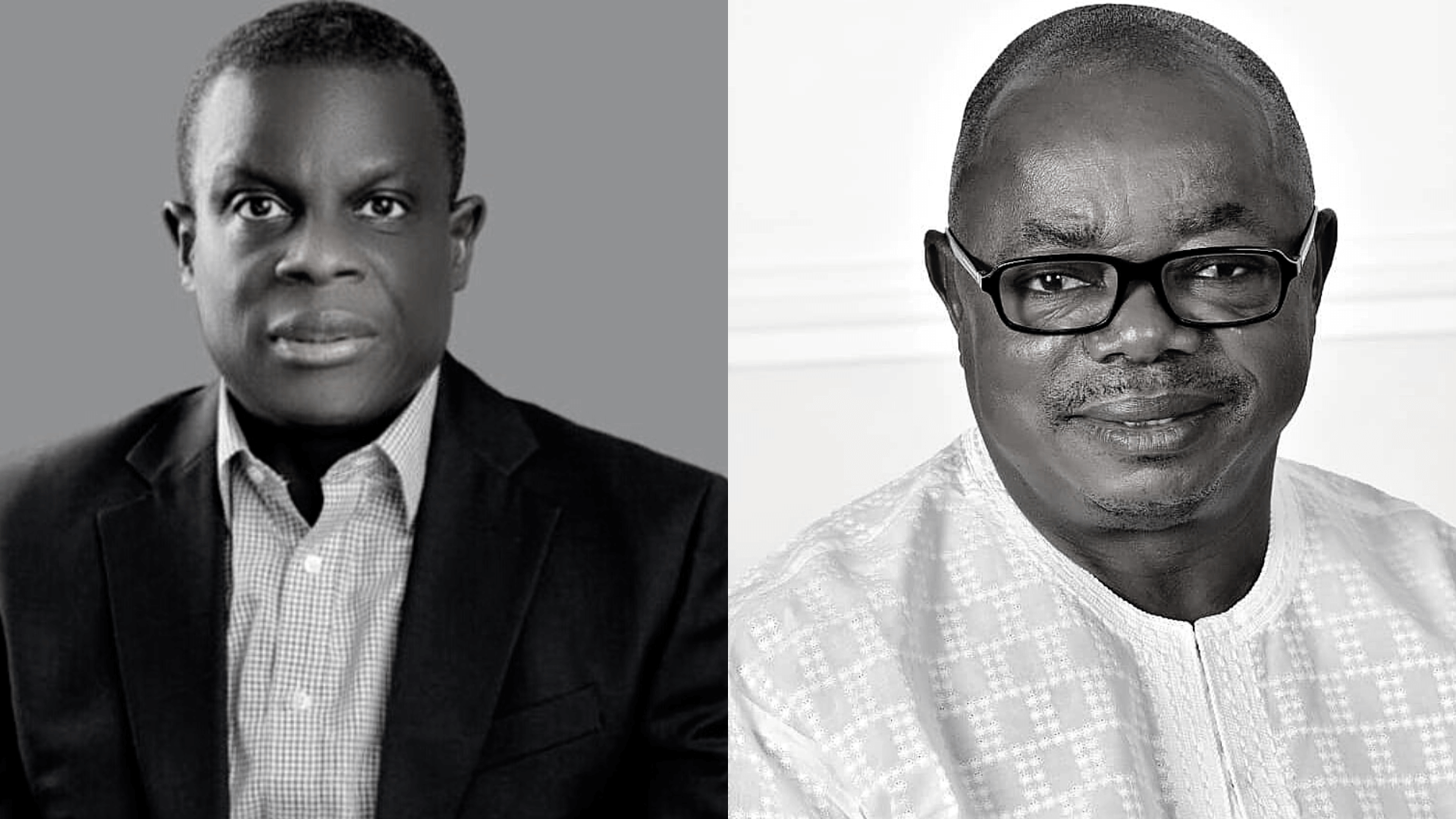
Yesterday, Olu Akanmu, announced his resignation as president and co-CEO of Opay Nigeria.
Moving forward: Aftera two-year tenure at Opay, Akanmu describes his resignation as the “End of a Chapter. Moving on to New Ones.”
Known as a veteran industry professional and the former executive director at First City Monument Bank (FCMB), Akanmu joined Opay in November 2021, and during his leadership, the company achieved remarkable growth, with up to 30 million registered users as of April this year.
“My gratitude to all my colleagues at Opay for the good work we did together in deepeningfinancial inclusion in Nigeria, ensuring that less and less number of our people are left behind in partaking out of the opportunities of the digital financial system. Many thanks also to all our ecosystem partners and enablers who complimented us, without which we would not have been able to deliver on the lofty mission of OPay which is to ‘deepen financial inclusion through technology’,” Akanmu wrote in his statement on Twitter.
Zoom out: Meanwhile, Opay has announced Daudu Gotring as managing director of the fintech. Gotring’s appointment is subject to regulatory approval from Nigeria’s apex bank where he coincidentally served as a director.
The World Wide Web3
Source:

|
Coin Name |
Current Value |
Day |
Month |
|---|---|---|---|
| $29,273 |
– 0.51% |
– 3.96% |
|
| $1,861 |
– 0.64% |
– 3.94% |
|
|
$2.33 |
+ 0.31% |
+ 39.93% |
|
| $0.56 |
– 12.39% |
– 26.72% |
* Data as of 02:00 AM WAT, August 1, 2023.
Nigeria’s Securities Exchange Commission (SEC) has declared the global crypto exchange giant, Binance, as illegal in the country. This all started on June 9, 2023, when the SEC issued a statement saying an entity called “Binance Nigeria Limited” is illegal. However, Binance quickly distanced itself from this entity, asserting that it had no affiliation with it whatsoever.
But the plot thickened! On Friday, July 28, 2023, the SEC made it crystal clear that it was indeed referring to none other than Binance itself. It even included its website; binance.com.
The SEC didn’t stop there: It also issued a strong warning to all other crypto investment platforms, cautioning them against soliciting Nigerian investors. The SEC went on to advise the public about the high risks associated with investing in crypto assets, warning that it could lead to a total loss of investments.
So Nigeria’s against crypto? Not exactly. While asserting that crypto trading is risky, the SEC is deeming Binance’s operations illegal because it is operating without proper registration or regulation. The agency issued rules for all crypto and digital asset service providers in the country in 2022. This includes new licence requirements, categorisation of platforms, and operational guidelines. It seems like the SEC is pushing for a more structured and regulated approach to crypto exchanges in Nigeria, not a complete ban.
Rings familiar? This is not the first time we are telling you about a country’s SEC accusing Binance of not taking registration seriously. The U.S. SEC made such allegations in March. Even beyond that, the crypto exchange is locked in a legal battle with the regulator and facing accusations of blatantly breaking rules and avoiding oversight.
Authenticate with QoreID

Ensure accurate user authentication with QoreID‘s cutting-edge biometric solutions. Safeguard your platform from fraudulent activities using our advanced anti-spoofing technology. Contact us at sales@qoreid.com to book a demo today.
TC Live: The State of Tech in Africa, Q2 2023
Join us on Friday, August 4, 2023, for a special edition of TC Live, as TechCabal Insights will be launching The State of Tech report, the Q2 2023 edition. This is our flagship report offering a bird’s eye view of African tech trends and analyzing quarterly data on funding, acquisitions, expansions, regulations, policies, and emerging developments in the continent’s digital economy.
The latest edition will explore happenings during the previous quarter in retrospect with actionable insights and expert perspectives on notable patterns and trends to look out for. At the launch event, we would also bring together various ecosystem stakeholders to discuss our exciting findings and highlight from the report with you towards shaping conversations about the general outlook of African tech.
- Visa is open to applications for its Africa Fintech Accelerator Program. Startups up to the Series A stage are encouraged to apply for a chance to gain unparalleled expertise, valuable industry connections, cutting-edge technology, and potential investment funding. Apply by August 25.
- Women Who Build Africa (WWBA), a vibrant community that caters to the needs and growth of women in technology across the African continent, has put out an open invitation for female founders, investors, and ecosystem partners to participate in their inaugural annual assembly. The initiative comes with the promise of an all-expense-paid trip to Nairobi for ten selected founders. Apply by August 14.
- If you are between 18 – 35 years old, apply for a spot at the 2023 Landscape Leadership Workshop ($2,000 grant available), and embark on a transformative journey toward landscape leadership. Apply by August 10.
- Applications are open for the Diamonstein-Spelvogel Visual Journalism Fellowship 2023(up to $75,000). ProPublica seeks a creative, empathetic and ambitious visual journalist to join their editorial team as the inaugural Diamonstein-Spelvogel Visual Journalism fellow. Apply by August 8.
What else is happening in tech?
Want more of TechCabal? Sign up for our insightful newsletters on the business and economy of tech in Africa.
- The Next Wave: futuristic analysis of the business of tech in Africa.
- TC Weekender: weekly roundup of the most important tech news out of Africa.
- Entering Tech: tech career insights and opportunities in your inbox every Wednesday at 12 PM WAT.
- In a Giffy: business decisions powered by data-driven insights and analysis you can trust.
P:S If you’re often missing TC Daily in your inbox, check your Promotions folder and move any edition of TC Daily from “Promotions” to your “Main” or “Primary” folder and TC Daily will always come to you.












